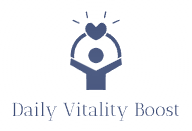
Daily Vitality Boost: Recharge Your Life – The Power of Sleep and Recovery featured
Are you feeling constantly drained, struggling to focus, or finding your workouts aren’t yielding the results you expect? The answer might not lie in doing more, but in recovering better. We often push ourselves to the limit, fueled by caffeine and the pressure to be constantly productive. But neglecting sleep and recovery is like driving a car without ever changing the oil – eventually, something’s going to break down.
At Daily Vitality Boost, we believe in a holistic approach to health, and that starts with understanding the fundamental importance of sleep and recovery. Let’s dive into why these are non-negotiable for a vibrant and energized life.
Why Sleep is Your Superpower
Sleep isn’t just downtime; it’s a period of intense restorative activity. During sleep, your body and mind work tirelessly to:
- Repair and Rebuild: Muscles recover, tissues heal, and cellular damage is repaired. This is crucial for physical performance and overall resilience.
- Consolidate Memories: Sleep helps transfer information from short-term to long-term memory, improving learning and cognitive function.
- Boost Your Immune System: Sleep deprivation weakens your immune defenses, making you more susceptible to illness. Adequate sleep strengthens your body’s ability to fight off infection.
- Regulate Hormones: Sleep plays a vital role in regulating hormones that control appetite, stress, and mood. Disrupted sleep can lead to hormonal imbalances, impacting everything from weight management to emotional well-being.
- Clear Brain Toxins: During sleep, your brain clears out metabolic waste products that accumulate throughout the day. This detoxification process is essential for optimal brain function and preventing neurodegenerative diseases.

Beyond Sleep: The Many Facets of Recovery
While sleep is the cornerstone of recovery, it’s just one piece of the puzzle. True recovery encompasses a range of practices that help your body and mind bounce back from stress.
- Active Recovery: Gentle activities like walking, yoga, or swimming can improve blood flow, reduce muscle soreness, and promote healing. Think of it as “greasing the joints” and flushing out metabolic waste.
- Nutrition: Replenishing your body with the right nutrients is crucial for recovery. Focus on protein for muscle repair, complex carbohydrates for energy replenishment, and plenty of fruits and vegetables for antioxidants and vitamins.
- Hydration: Water is essential for every bodily function, including recovery. Dehydration can impair muscle function, reduce energy levels, and slow down the healing process.
- Stress Management: Chronic stress can sabotage your recovery efforts. Practices like meditation, deep breathing exercises, spending time in nature, or engaging in hobbies can help you manage stress and promote relaxation.
- Mindfulness and Rest: Sometimes, the best thing you can do is simply allow yourself to rest. This could involve taking a nap, reading a book, listening to music, or spending time in quiet contemplation.
- Massage & Bodywork: Massage can help to release muscle tension, improve circulation, and reduce inflammation.
Practical Tips for Optimizing Sleep and Recovery
Ready to make sleep and recovery a priority? Here are some actionable tips:
- Establish a Consistent Sleep Schedule: Go to bed and wake up at the same time each day, even on weekends, to regulate your body’s natural sleep-wake cycle.
- Create a Relaxing Bedtime Routine: Wind down with a warm bath, reading, or gentle stretching. Avoid screens and stimulating activities before bed.
- Optimize Your Sleep Environment: Make sure your bedroom is dark, quiet, and cool. Consider using blackout curtains, earplugs, or a white noise machine.
- Limit Caffeine and Alcohol: These substances can interfere with sleep quality. Avoid them in the hours leading up to bedtime.
- Prioritize Nutrition and Hydration: Fuel your body with healthy foods and stay hydrated throughout the day.
- Incorporate Active Recovery: Schedule regular active recovery sessions into your week.
- Manage Stress: Find healthy ways to manage stress, such as meditation, yoga, or spending time in nature.
- Listen to Your Body: Pay attention to your body’s signals and adjust your activity levels and recovery strategies accordingly. Don’t push yourself when you need to rest.
The Takeaway: Invest in Yourself
Sleep and recovery aren’t luxuries; they’re fundamental to your health, well-being, and performance. By prioritizing these practices, you’re investing in a more energized, resilient, and vibrant you.
We want to hear from you! What are your favorite recovery practices? Share your tips in the comments below!






Comments are closed